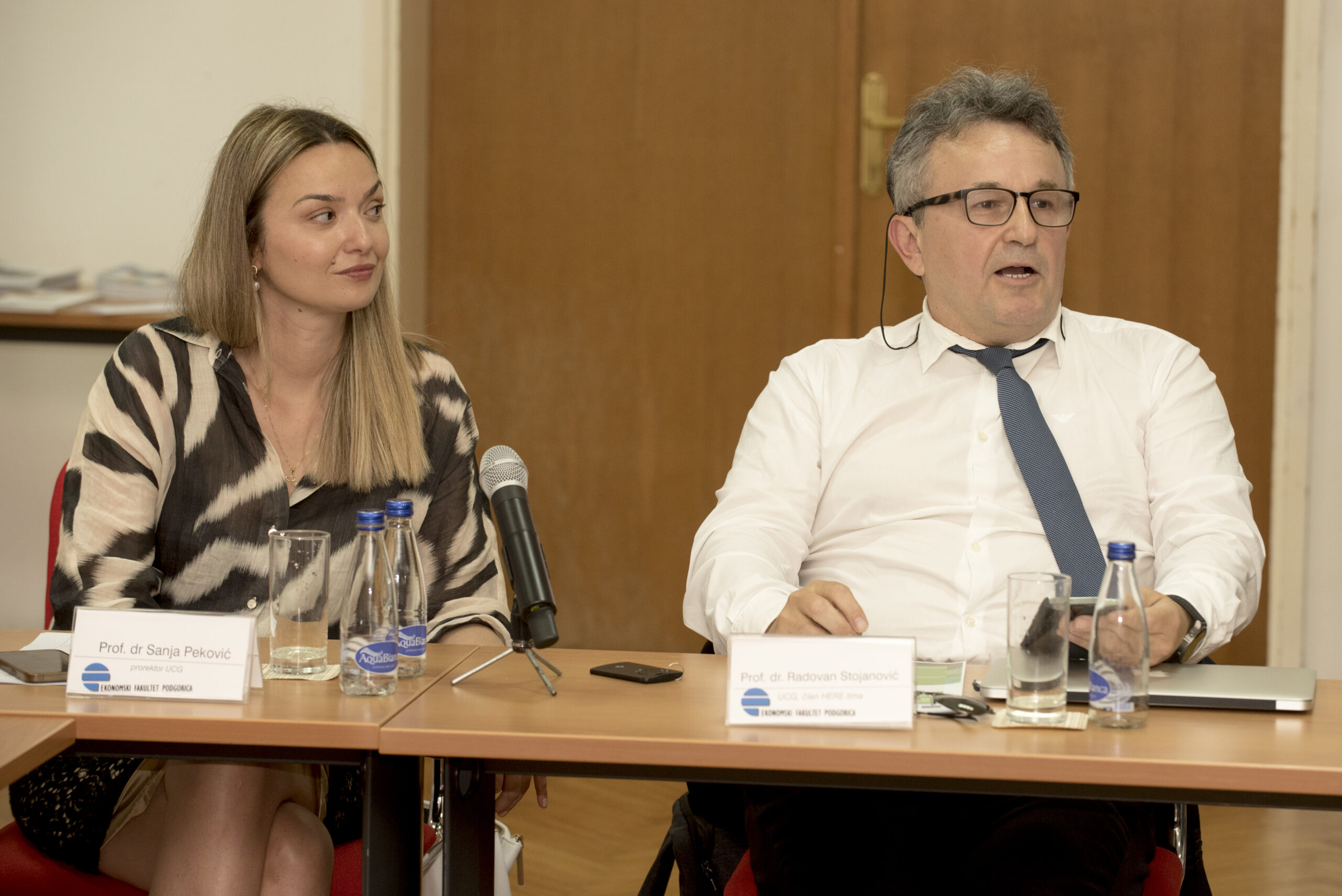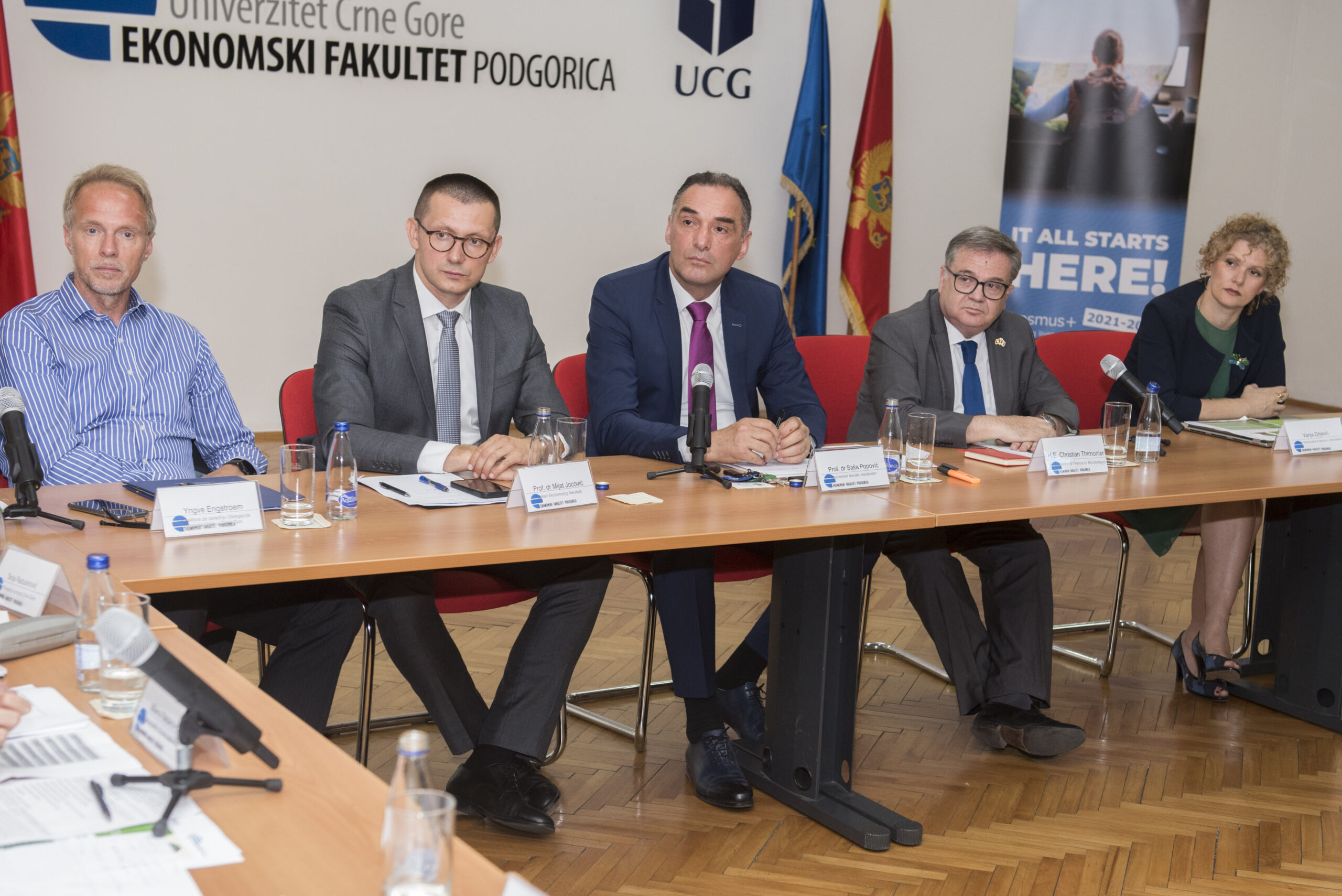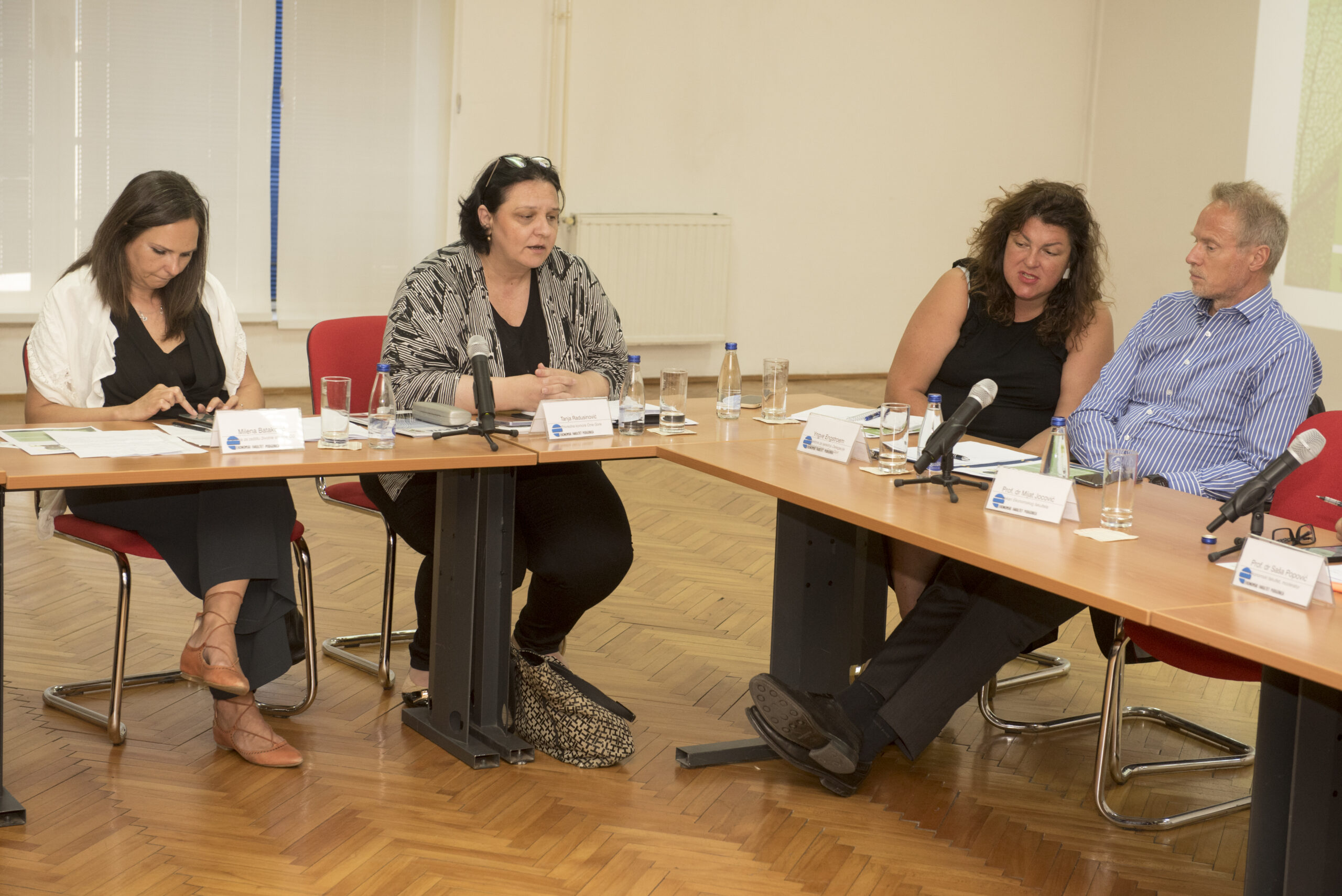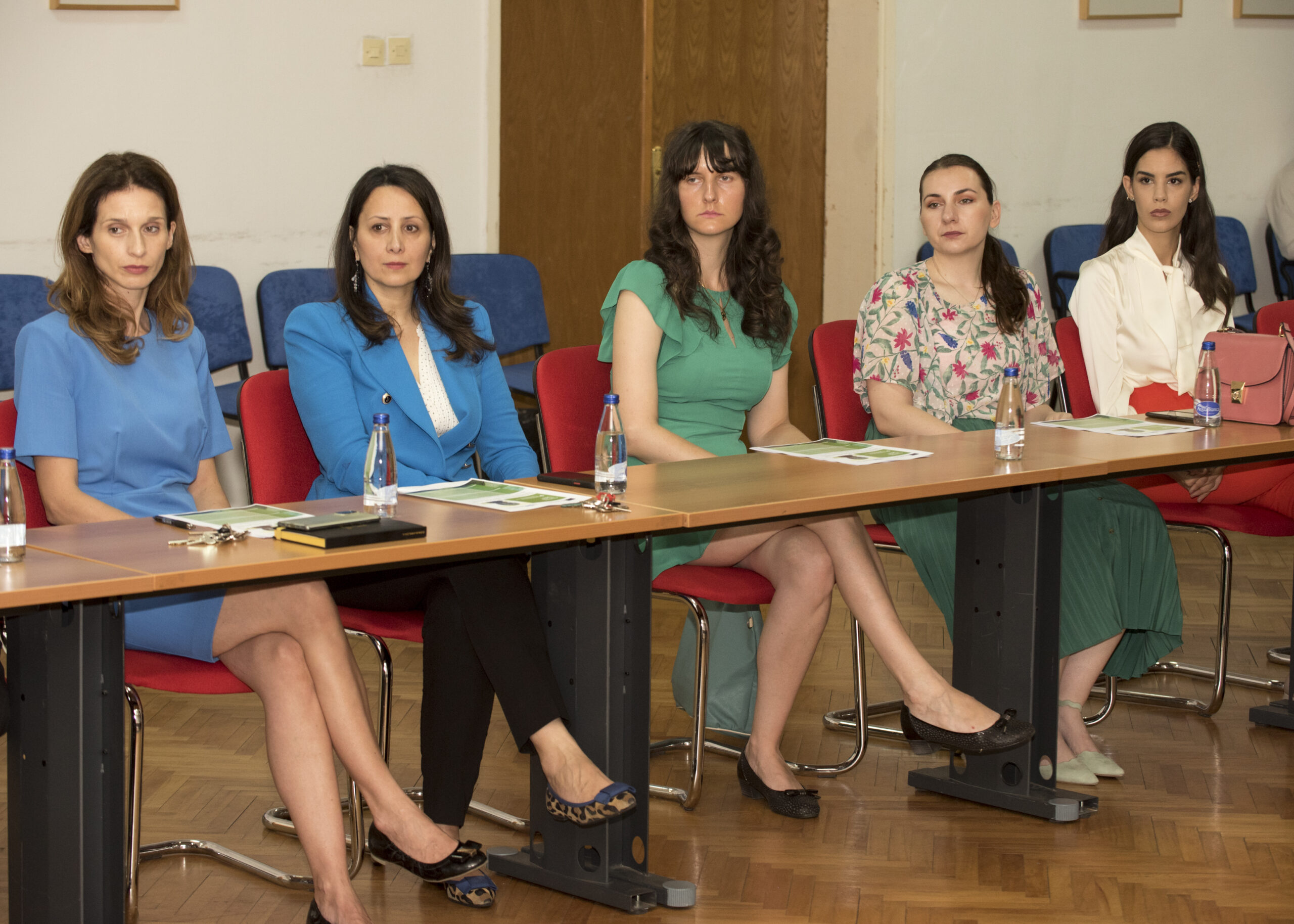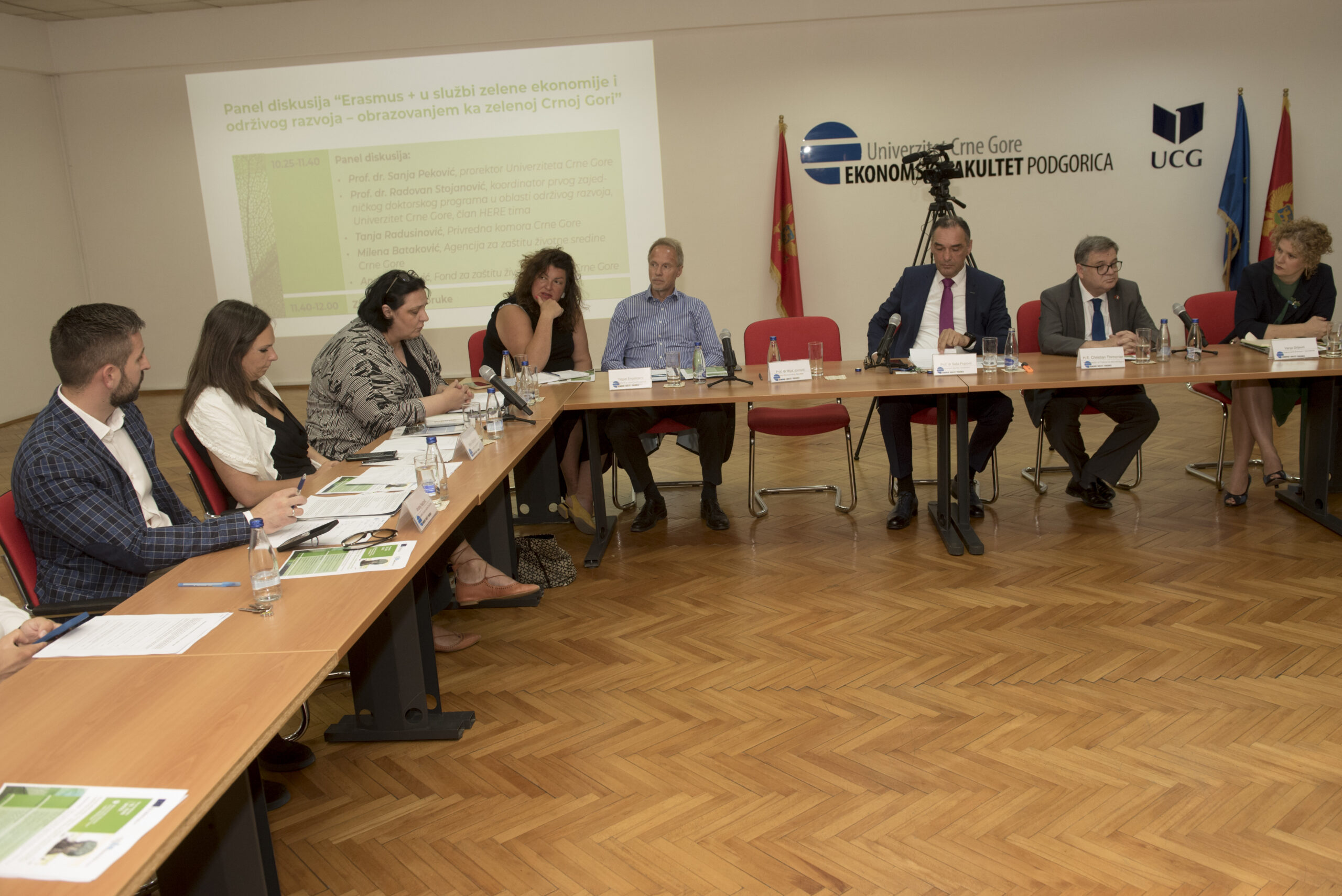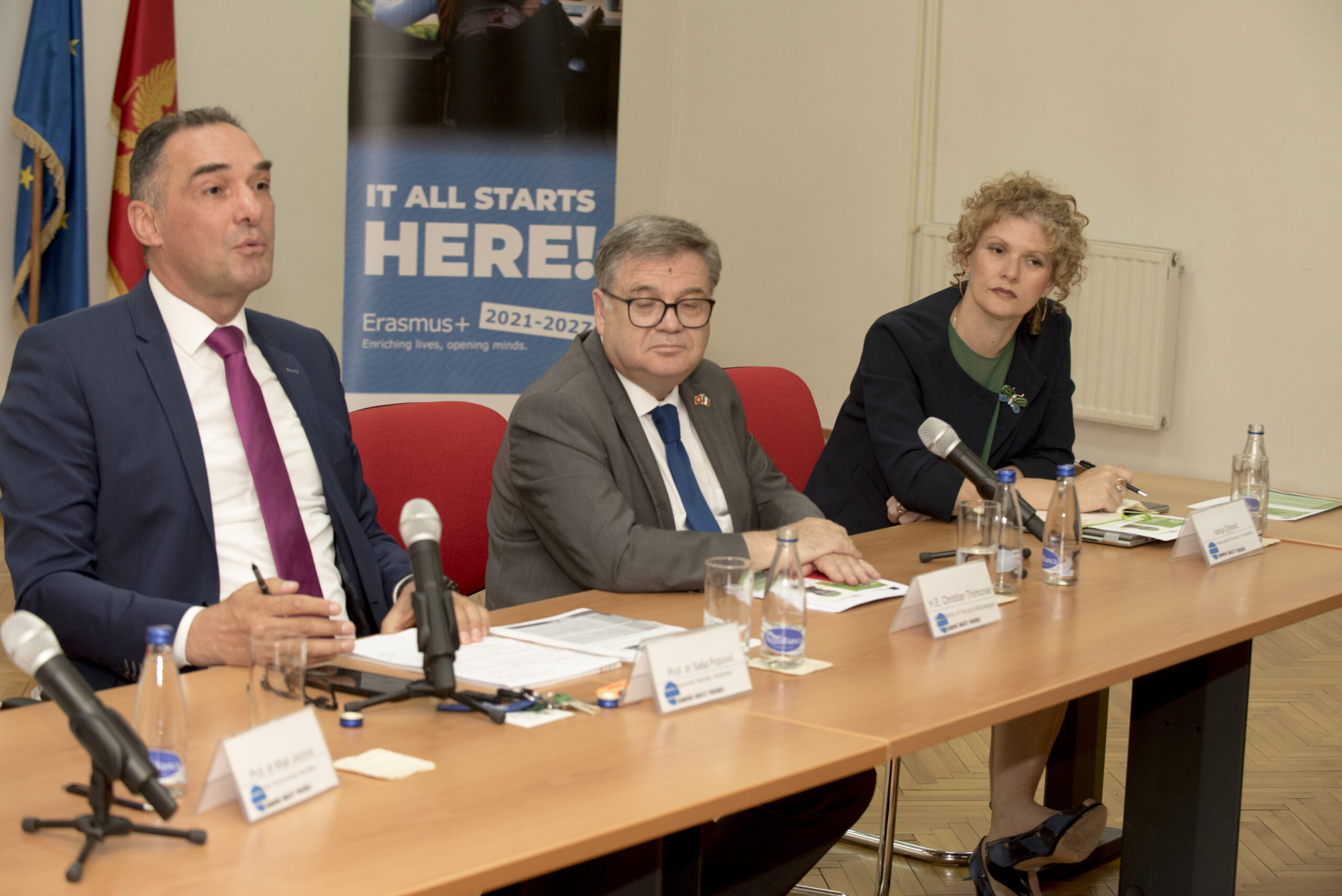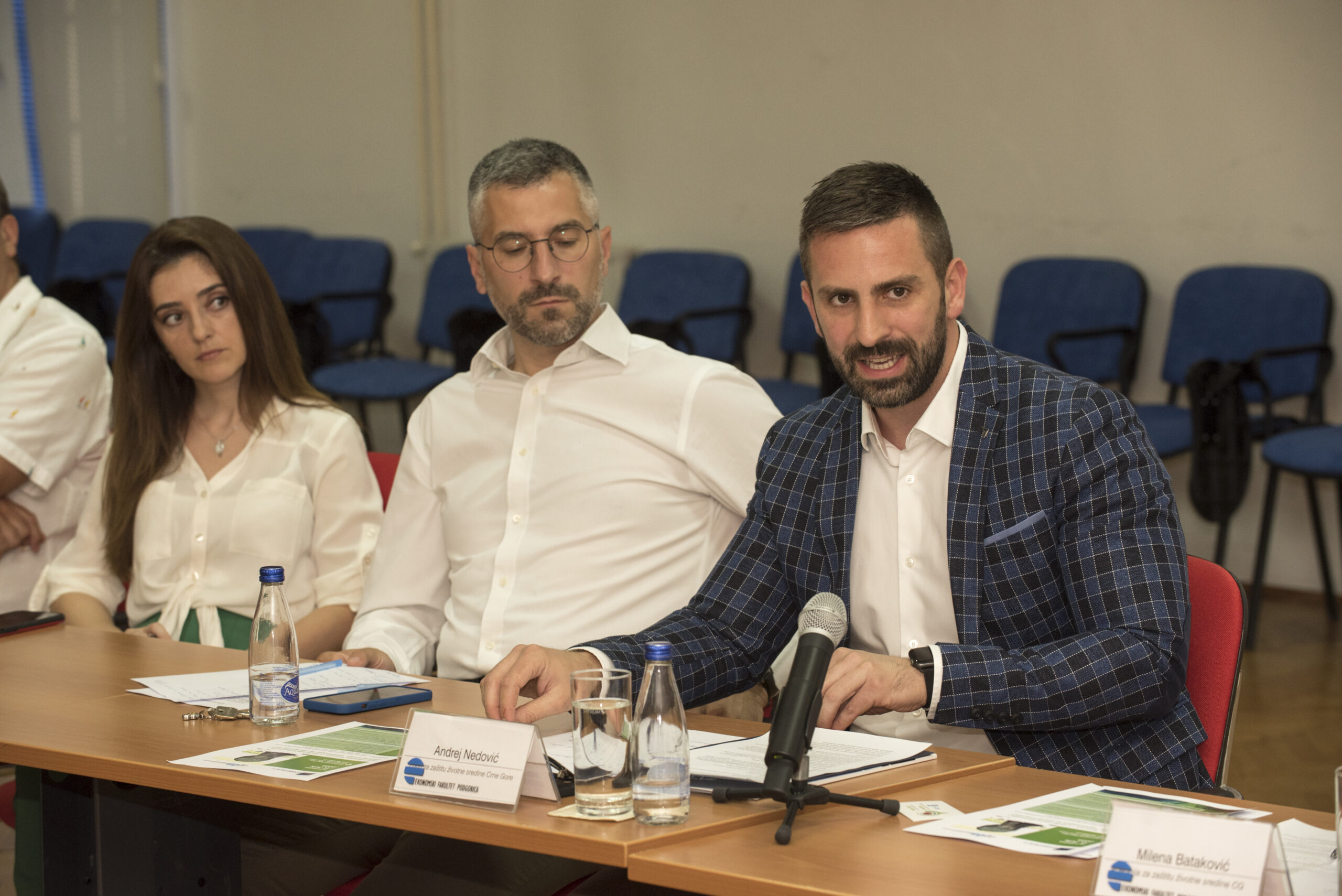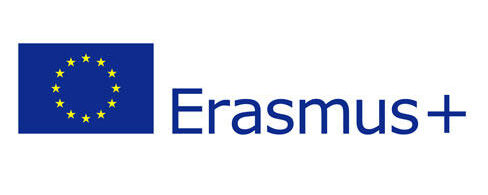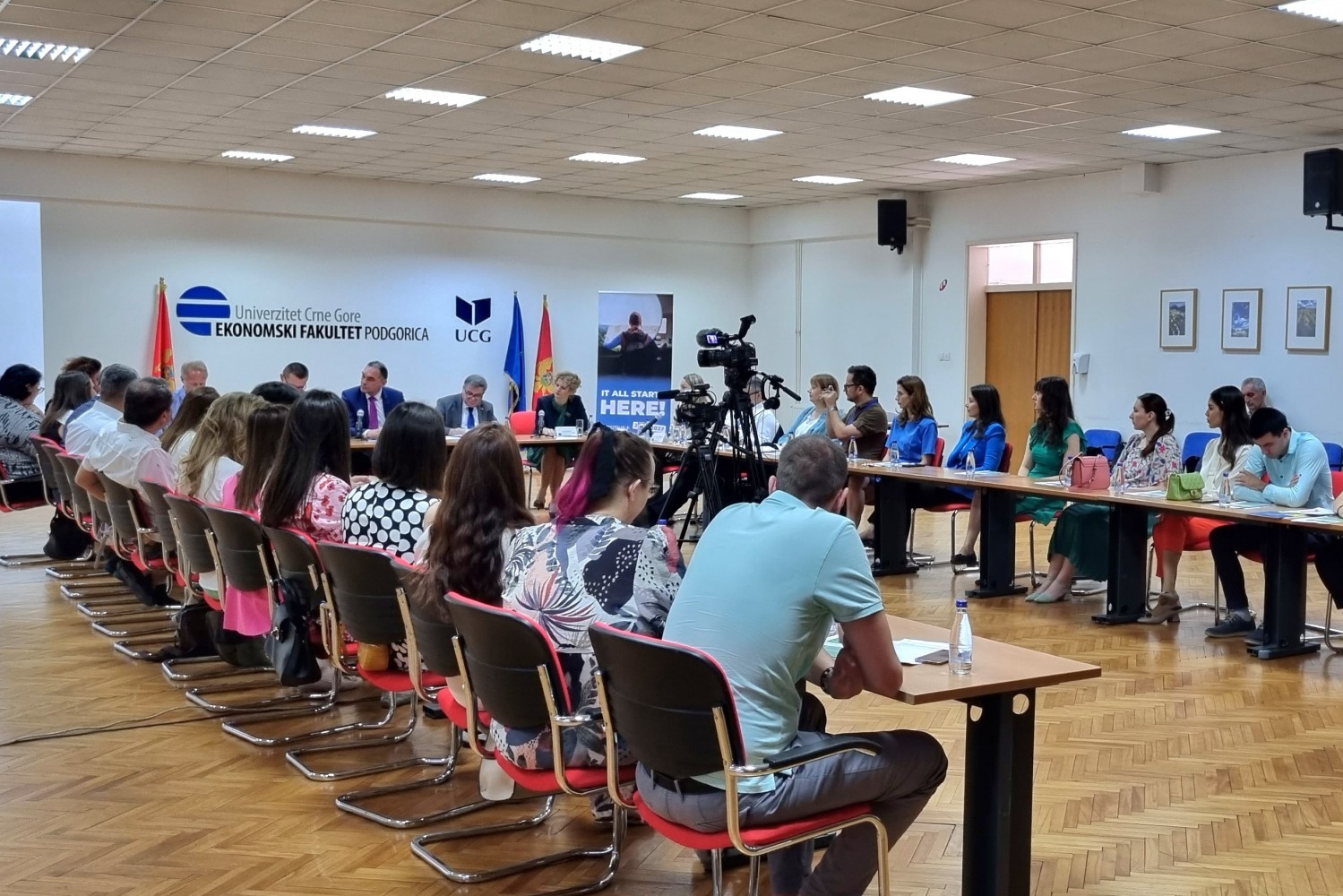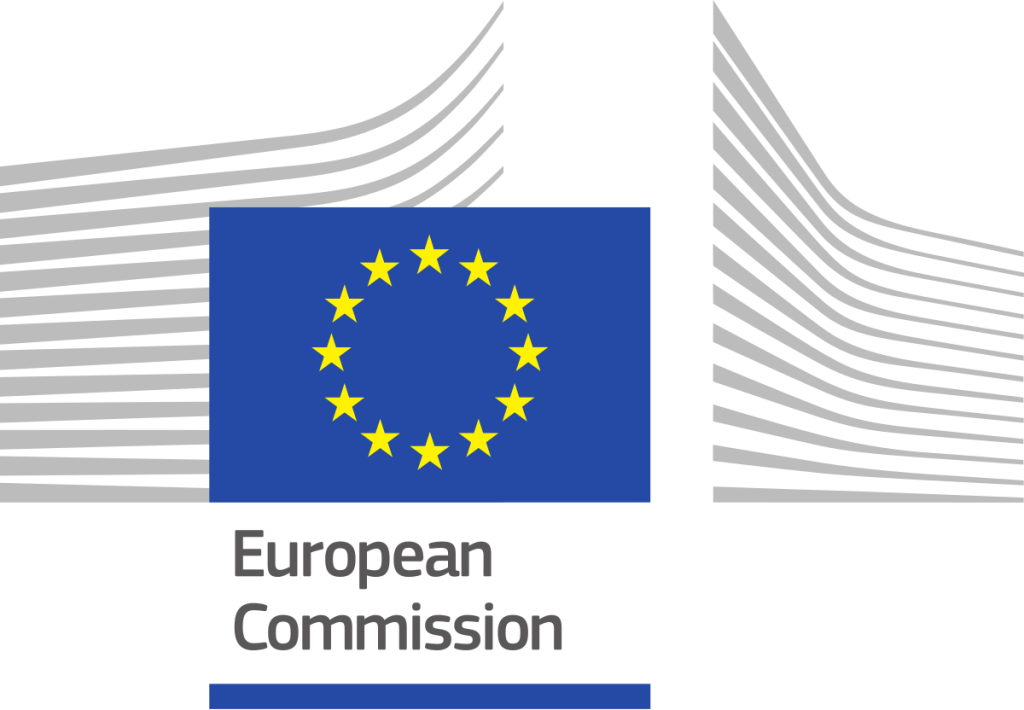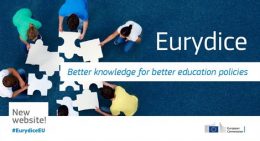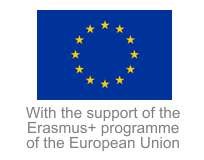The first in a series of events “Erasmus + in the service of green economy and sustainable development – education towards a green Montenegro”, organized by the National Erasmus+ Office in Montenegro as part of the launched campaign on the priorities of the new cycle of the Erasmus+ programme, was held today at the Faculty of Economics, University of Montenegro. At the panel discussion, moderated by prof. Saša Popović from the Faculty of Economics, representatives of the various relevant institutions, the academic community, the diplomatic corps as well as the EU delegation in Montenegro took part.
The green economy, together with inclusion and diversity, digital transformation and participation in democratic life, represent the key priorities of the new Erasmus+ program cycle (2021-2027). As the biggest program of the European Union in the field of education, training, youth and sports, the Erasmus+ program will be a key instrument for building knowledge, skills and competences, as well as attitudes to support and nurture the aforementioned priorities in the European Union and beyond.
The dean of the Faculty of Economics, prof. Mijat Jocović, greeted those present and wished them success in their work. He expressed his satisfaction with the fact that the Faculty was recognized as a meeting place where we can, in a debate based on academic freedom, exchange opinions on various topics that are important for the integration processes of Montenegro: “The issue of green economy is of great interest to both experts and the public in general. Through the European Green Plan, the European Union sends a clear message to all of us that through our activities we must contribute to the goal set, which is climate neutrality. What we, as an academic community, can contribute to is the development of innovative learning methods in education, so that our students learn as much as possible about sustainable development and climate change, on the common path to sustainability.” said Jocović.
The director of the National Erasmus+ office in Montenegro, Vanja Drljević, expressed satisfaction that the event was attended by representatives of institutions that can make a significant contribution to the issue of green economy in Montenegro, as well as professors who have already participated in projects with that theme. She pointed out that the ideas for the next Erasmus+ projects should have a green approach and be designed to integrate green practices in any area the project would deal with. This kind of ecological approach is something that the status of Montenegro as an ecological country obliges us to do, concluded Drljević. The European Union recognizes the key role of schools and universities in involving pupils, students, parents and the wider community in creating the changes needed to become carbon neutral by 2050. That is why the budget for Erasmus+ projects for the period 2021-2027 almost doubled to 26 billion euros.
Yngve Engstroem, Head of the cooperation sector of the Delegation of the European Union to Montenegro, emphasized that Montenegro needed to connect economic growth and new business opportunities with more sustainable patterns of production and consumption: “Education is very important in this aspect, and I am sure that the Montenegrin educational institutions come up with many brilliant projects within Erasmus+ with a focus on sustainability and green transition.” he said.
In his address to the audience, the ambassador of France in Montenegro, H. E. Christian Thimonier, sent a message, among other things, that education through Erasmus+, with the active support of France, would be a key factor for the implementation of the green European transition.
Vice-Rector at the University of Montenegro, Prof. Sanja Peković, during the working part of the panel discussion, announced that the empowerment and ‘green’ improvement of teaching-scientific processes, through the inclusion of the principles of sustainable development and green economy in learning outcomes at all levels of education, were key instruments for creating socio-economic growth based on ecological sustainability.
Andrej Nedović, from the Environmental Protection Fund of Montenegro, believes that the key segment of the Green Economy in Montenegro is the recognition of the economic importance of the natural capital we possess for creating additional value, employment, increasing the standard of living of citizens and preserving the environment.
Prof. Radovan Stojanović, as a participant in the panel discussion, sent two important messages to those present – sustainability is the activity that man deals with for the longest time, in fact, his entire life, and that a sustainable system means giving more than taking.
The representative of the Environmental Protection Agency of Montenegro at today’s panel discussion, Milena Bataković, believes that the green economy is not a sacrifice of profit in order to preserve nature and protect the environment: “It is a necessity and an instrument that enables us to adapt more adequately to the evidence of health, socio-economic and climate crisis, all with the aim of ensuring a perspective, i.e. a satisfactory quality of life and conditions in the period to come. The above implies the use of new knowledge and technologies and the transfer of established practice towards new knowledge and technologies, which represents the chance of a higher education system both in the context of education and in the context of incentives and development of innovations.” she concluded.
The director of the Sector for projects at the Chamber of Economy of Montenegro, Tanja Radusinović, director of the institution where the creation of the Road Map of Montenegro towards the circular economy was initiated, believes that in this way the Chamber of Economy has shown a proactive role, thus taking on the role of an institution that leads this process and thinks responsible about the challenges that lie ahead. “The business community is the one that has the main role and driving force in the processes related to transformations and innovations in business, therefore we undertook the obligation to create this document. Our commitment to circular and green economy issues is also reflected in the initiated cycle of training for our members and representatives of the administration at the national and local level.” said Radusinović.



